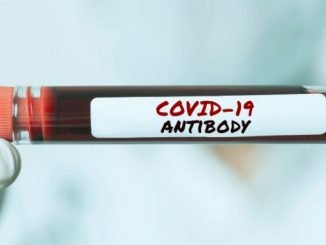
What’s more, the “killer” T cells from patients developed 80-96 made cytotoxic particles at a lower repeat than tantamount cells from more young patients.
Disregarding the way that people of everything ages can be debased with SARS-CoV-2, the contamination that causes COVID-19, old patients face a higher peril of reality and going than more young patients. New assessment, taking a gander at the sheltered response among age social occasions, may help explain why.
More prepared patients with the sickness have lower frequencies of the protected cells expected to eliminate the disease from the body, the authorities found. The assessment was disseminated for the current week in mBio, an open-access journal of the American Society for Microbiology. “Elderly people have more genuine diseases stood out from youths, and we found that the cytotoxic some segment of safe control isn’t as compelling to respond to the contamination in more settled people,” said virologist Gennadiy Zelinskyy, Ph.D., at the University Hospital Essen, in Germany, who also drove the new examination.

He and his partners separated blood tests from 30 people with delicate cases of COVID-19 to perceive how T cells, which are fundamental for affirmation and end of corrupted cells, respond during SARS-CoV-2 infection. Tireless ages stretched out from the mid-20s to the last aspect of the 90s. In all patients, the operators found that serious SARS-CoV-2 pollutions provoked lower amounts of T cells in the blood of the patients, diverged from strong individuals.
This reduction has been one of various undesirable surprises from COVID-19, said Zelinskyy. Most diseases, once inside the body, trigger an uptick in the invulnerable structure’s advancement of T cells. These consolidate “killer” T cells, which expect a fundamental part in slaughtering contamination spoiled cells. They produce cytotoxic iotas that annihilate defiled cells in the body. Notwithstanding, if a person’s resistant structure delivers less of these T cells, said Zelinskyy, it will be less viable at battling off a viral tainting.
All things considered, in patients more than 80. What’s more, the “killer” T cells from patients developed 80-96 made cytotoxic particles at a lower repeat than tantamount cells from more young patients.
The SARS-CoV-2 disease interfaces with cells in the nose or mouth. Starting there, it may spread to the lungs and continue forward to various organs, setting off a risky tainting. “Cytotoxic T cells genuinely fight for control during this serious time of sickness,” Zelinskyy said. If an old patient’s insusceptible system creates less killer T cells, and these cells are insufficiently outfitted, he expressed, they may be mounting a deficient security against SARS-CoV-2. The viral particles can continue to spread and, likewise, the tainting decays.
The new data recommend that cytotoxic T cells expect a key part in the control of early defilements, anyway Zelinskyy prompted that it’s too soon to know whether that affiliation can be outfitted to design convincing immunotherapy that uses these cells. In past assessments on viral defilements in mice, his social affair found that a checkpoint inhibitor – immunotherapy that institutes killer T cells and effectively conveys the brakes on the invulnerable system – improved contamination control from the beginning anyway could later explanation mischief to the lungs and various organs. Further assessments are defended, he expressed, to all the more probable fathom the potential risks and favorable circumstances of intruding with T cells as a way to deal with control SARS-CoV-2 and various contaminations.



